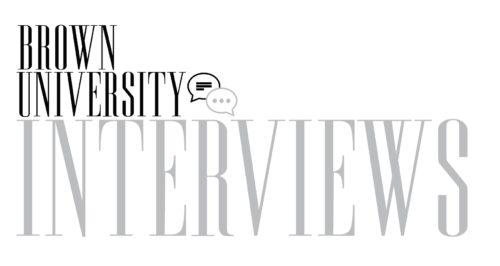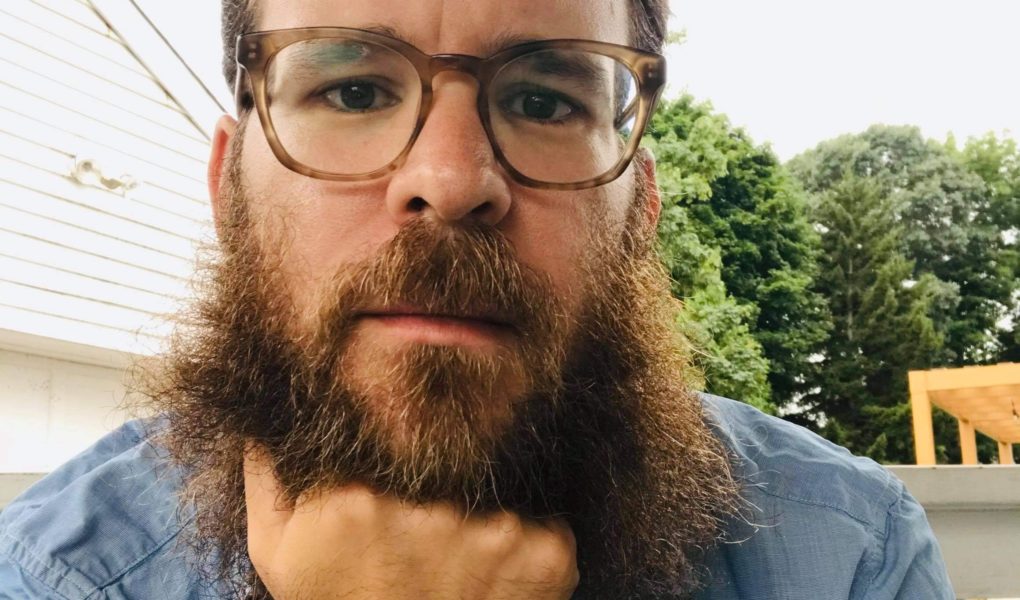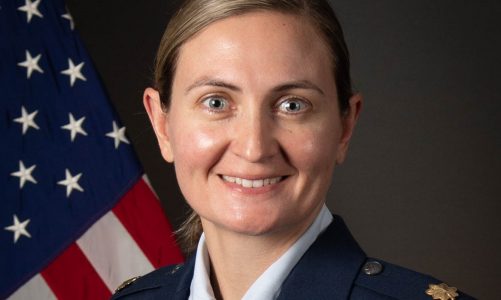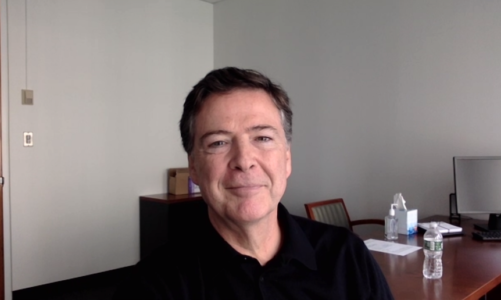
Rabbi Josh Bolton is the Executive Director of Brown RISD Hillel and has worked with university students for over a decade. He came to Brown after serving eight years as Director and Senior Jewish Educator for the Jewish Renaissance Project at Hillel at the University of Pennsylvania and received a Richard M. Joel Exemplar of Excellence Award for “…pushing the boundaries of social media and articulating a rabbinate for the 21st century.” We can attest that this was well deserved, as he is, to date, our only interviewee who needed no convincing to take a selfie for his article. Rabbi Josh is a graduate of the Reconstructionist Rabbinical College and holds an MFA in Creative Writing from the University of Massachusetts, Amherst. His book One Hundred Suggestions for Seekers and Spiritual Activists was published in 2018, and his new book, Jewish Futurisms, is forthcoming from Alternadox Press.
___
Rabbi Josh Bolton: I just want to open by acknowledging that I am approaching Jewish history and the Jewish present from a certain perspective. It’s clear to me that we can’t easily talk about Judaism or a Jewish community, but rather we talk about Judaisms and Jewish communities. So, my perspective, my answers, and my Jewish approach are defined by the personal history of my own spiritual journey and also my own particular Judaism and Jewish community. In some ways, that could be the most important answer I could give to everything here: that the Jewish community is both not monolithic and, in spite of everything, a community. Holding that tension is usually unbearable for Jews, and often makes no sense to other people.
Amelia Spalter: Hillels are distinct from other Jewish organizations in that they exist only within colleges. Why is it necessary to have a dedicated space for Judaism on campus, and how does the day-to-day of your job as a Hillel rabbi differ from the rabbi in a public synagogue?
I like to think that Hillel is, in some ways, a Tikkun (תיקון) for the contemporary college campus. You know, in our scene there is such a heavy emphasis placed on knowing your path, determining it early, distinguishing yourself by the things that you have accomplished, demonstrating your success, creativity, and innovation, and that you’ve got it all figured out. I want Hillel to be a place where you can come and admit that you don’t know. It’s the place where you can be reminded of the limits of human wisdom. It’s a place where you can come to be reminded that you can’t do it alone, that you depend upon the generosity and support of friends and community. It’s a place where you can come to acknowledge that growth involves making mistakes and screwing up as much as it includes demonstrating competency. That’s an important component of becoming oneself, which is really the heart and soul of what the university experience is about. So, I offer that as a reframing of the purpose of the Hillel on university campuses.
Jewish students are also inheritors of collective history, practices, inclinations, and traumas. So, it is incredibly important that they have a place to gather and think deeply around this Jewish inheritance. Some might say that is somehow less needed today. I would say that it is needed more than ever in today’s cultural moment, in which Jewish identity is profoundly complicated and in which Jewish practice has gone through a great series of transitions. The Jewish community looks and feels more different than it has at any time recently. Jewish belonging is being challenged from within and without. There is so much to work through, process, console, and celebrate. Hillel is the place to do that. That is our mission, full stop.
Who is Hillel for? Is there an invisible force field around the front door that you can only penetrate if you are Jewish?
Hillel is a gathering place. It’s a gathering place for Jewish students of all types, backgrounds, interests, orientations, and their friends, too. But, you know, the lives of most, maybe all, American Jews today, especially 20-year-olds, are no longer strictly defined by the boundaries of the Jewish community. As a matter of fact, the boundaries of the Jewish community are much less defined than they were perhaps 50 or 100 years ago. Today, our best friends are our fellow travelers coming from traditions and backgrounds that are not Jewish. So, in order for Hillel to adequately reflect Jewish students’ own lived experiences, we presume that Hillel needs to be a welcoming place for every student. If you come on Friday night to Shabbat, you have a lot of Jewish students, and you have their non-Jewish friends.
So, there’s certainly no invisible force field, but in terms of the organization’s mission, Hillel is a center of Jewish life. Hillels are constantly participating in the redefinition, revivification, reinterpretation and reinvention of Jewish life. It’s an explicitly Jewish project, so our mission is to create relationships with, to engage, inspire, and provoke Jewish students. To be clear, when I say that, I mean every Jewish student on campus. Not just the students who are most passionate about their Jewish identities and Jewish practice, but every Jewish student. We want to give everyone a seat at the table to share their own lived Jewish experience in all of its diversity, in all of its richness, as well as all of its tendentiousness… You know, in all of its, all of it! So, our mission is explicitly focused on engaging Jewish students, but we recognize that Jewish students’ lives take place within diverse networks. So, Hillel is an open place that is home to many different people.
Frankly, as an educator, I’ve found that you always want to have a few non-Jewish students—I don’t like to define people in the negative, so instead of non-Jews, I’ll call them “fellow travelers,”—you always want to have some fellow travelers in an educational setting, because Jews can be anxious about not knowing their own tradition. We tend not to ask questions for fear of revealing a lack of knowing, but our fellow travelers ask all sorts of great questions. Jews would be afraid to ask, “Why do we wash our hands before we eat Challah?” or “What are we saying in this blessing right here?” These questions can benefit the educator in tremendous ways.
Students often come to college wondering if they are “Jewish enough” for Hillel, or to even claim a Jewish identity at all. What are your parameters for answering that question?
That’s a beautiful, and sometimes painful question. In reality, Jewish consciousness, Jewish identity, Jewish belonging can often be a process, and often not an easy one. There’s a lot of Jewish journeying going on in our community. There are folks who came from relatively thick Jewish backgrounds alongside folks who came from places without much Jewish connectivity. One of Hillel’s roles as an organization, and of each of its professionals, is to meet every Jewish student where they’re at, so to speak. We are here to support students on their journeys towards their authentic points. I can’t assume what a Jew looks like, what a Jew feels like, or what a Jew practices like. I acknowledge that each and every Jewish identity and story has a place of its own. I want to honor that, so as to let students grow in ways that have meaning and significance to them. Spiritually speaking, I believe that the Jewish tradition encapsulates the dynamics of an ongoing journey. That constant sense of “not there yet,” that sense of not having quite arrived, that sense of unrequitedness; that is in itself a sign of the strength, vitality, and health of the Jewish journey. The moment in which you say, “Ah, I’m here now. I don’t have to go any further,” is, paradoxically, the place where spiritual journeys dry up.
So, my message is twofold. We want to raise up, honor, and support students in growing towards places of thicker, more authentic, points of their Jewish selves. At the same time, we want to acknowledge the fact that those journeys should never end. That’s an important lesson in the Jewish spiritual inheritance, that it’s never over, and that there’s a constant seeking and constant wonderment. That process leads to greater self-discovery, but at the same time, greater probing of the Torah, which leads to a greater understanding of G-d and G-d’s own dynamics. Only the individual can answer if they’re Jewish enough. I can’t answer that for them. I can support them, nurture them, and guide them on their path towards enoughness, but I’m always going to insist that the Jewish journey has no end point. There is always further growth and transformation that is possible.
You mentioned that Jews on Brown and RISD’s campuses live in the diaspora. This may surprise some people, but it is not a diaspora from New York or Los Angeles. What role does Israel play in the Hillel experience, and what approach does Hillel take to facilitating open discourse about the Israeli-Palestinian conflict among the university community at-large?
It is really important to plumb the depths of the spiritual, historical, and actual relationship between the Jewish people, especially Jews living in diaspora, and the land of Israel. As someone who is deeply engaged with the literary traditions of our people, I’m always struck by the critical role that the land of Israel takes in our imagination of who we are: of our destiny, our origin, our troubles, our sense of belonging and of not belonging. It looms large. The longing to be in the land of Israel is itself emblematic of the Jewish longing for a redeemed world. It is the longing for a healed society. It is our story, and it is a precious story, and we’ve traveled with it for so long. So I feel as though I must reiterate that often. The personal longing that I feel to be in the land of Israel is not defined by contemporary politics. It is defined by the poetry of the land, and the significance of the land to my spirituality and to my sense of being.
As Jews, our intellectual tradition is premised on difficult questions. We’re historically unafraid of argument. Majority opinion or minority opinion, it’s all recorded. So, when it comes to the really difficult questions surrounding the project of contemporary Israel, I would say right from the beginning that Jewish students can handle those questions. It’s not always easy, but we have the capacity to do it as Jews. Hillel is in the business of difficult questions. We see them as sources of growth. I’m not always interested in questions that are easily answered, but rather in questions that better orient us in the world. Jewishly, we’re living through a period in which the paradigm is questions, not answers. I’m much less interested in Jewish thinkers, public intellectuals, and rabbis that have answers than I am in the ones who are asking the best questions. I would hope that our Hillel is defined by the questions that it can serve as a platform for even more than by the answers it provides.
I don’t know what the secret is to changing the paradigm in conversations about Israel and Palestine on university campuses. One starting point is increasing our individual capacity to listen with generosity to opinions and voices that are not our own, especially opinions and voices that differ. Another is broadening our capacity to hold multiple narratives at the same time. Neither of these are easy to do, but both are inevitably necessary in the world that we live in, a world that is post-grand-narrative. We are supporting students in their cultivation of that capacity with some of our programming, namely the Narrow Bridge Project at Brown RISD Hillel. That’s a project that brings together students of a variety of political orientations and enables them to explore the idea of Jewish peoplehood and begin to listen from across the chasms that separate individuals within our community. I really do believe that we are capable of transforming the conversation.
There has been controversy as to the purpose of Birthright Israel trips. Are they an educational period of cultural immersion and spiritual introspection or a “Jews Gone Wild” beach vacation?
You really have to see Birthright in the broader context of the great stretch of an arc of Jewish history. I am aware of the variety of narratives; I am just sharing one Jewish narrative. It’s one that’s important to hold, and that is the return of Jews to Israel from every continent across the world: the great diversity of the Jewish people returning to the land of Israel from western Europe to southern Asia, to eastern Africa, and beyond, establishing a sovereign state there. As Jews, we’re going to be sorting out the meaning of that for a long time. It’s had and will continue to have a profound impact on the trajectory of our collective history and profound implications for the heart of the individual Jew.
Within that context, Birthright is a vehicle that permits Jews who might not otherwise have the opportunity—maybe because they’d never considered it, maybe because they couldn’t afford it—to encounter these personally significant historical places firsthand. And many Jewish students in America have family in Israel who they’ve never been able to see in person. Birthright enables them to meet those family members for the first time. Every Jewish student in America who has never spent time there has never experienced what it’s like to live in a society where Hebrew is the language of the street, where the calendar is the Jewish calendar, where Jewish foods and Jewish humor and Jewish culture is the orienting force in society.
Something really important is that many American Jews have never experienced Jewish secularism in a society that is completely immersed in Jewish life. For many American Jews, being a secular person in a Jewish civilization is a very compelling choice. Observing those choices around Jewish identity is just not possible outside of Israel. In this regard, Birthright is more about Jewish identity than it is about any particular politics or the state of the conflict. I’m not naïve, I recognize that there are agendas out there. But each Hillel crafts its own Birthright experience. So, when we shape the itinerary of a Birthright trip for students from the Brown RISD Hillel, we’re really attuned to the backgrounds of our students, their particular Jewish journeys, and the fact that they are going to come back and continue on their individual American-Jewish trajectories. We’re conscientious of the opportunity to uniquely engage with our students in each opportunity like this.
Brown RISD Hillel Birthright is not a Disneyland trip. Brown students and RISD students are profoundly aware of the conflicts. They are mindful of the multiple narratives and are conscious of their own. They know how that argument takes place in the American context. They’re sometimes familiar with how that plays out in the Israeli-Palestinian context, and within the Middle East. Our Birthright trips leave ample room for students to explore those challenges, to ask difficult questions, to see the complexity of the society, to explore the points of pain, and that’s okay. We believe there is a lot to celebrate in arriving in the state of Israel, but we also believe that it is critical to understand the difficulties and the challenges that the diverse Israeli community experiences. We are not afraid to explore the nuances and complexities of the conflict between Israelis and Palestinians.
What effect did growing up in a predominantly secular culture have on your decision to become a rabbi, and how do you reconcile the two worlds from a personal standpoint?
I very much embody the complexities of a contemporary American Jewish life. My father was a Jew by choice, from a place in the American cultural space that is very non-Jewish. Though he left much of that, he also brought a lot of it with him. The American context of the non-Jewish world inspired me. I grew up with friends who were drawn to punk rock and art, and eventually we discovered smoking pot and wandering around in the woods. We had moments of encounters with other religions. We traveled around the world and met all kinds of people. I was raised in a diverse space, I went to public schools and had friends from lots of different places. All of that is still with me. Inevitably, that leaves me open to the diversity of the Jewish experience. It leaves me open to the possibility of different answers. It leaves me open to a sense of things being nonlinear and not always making sense. Life is often is a mess. That’s the human experience and the Jewish experience. Or, you know, that’s my Jewish experience.
In a lot of ways, that’s part of why I find myself at home in the academic village of the university, because I really identify with the way the ages of 18 to 23 can be a time of great turbulence in figuring things out, a time of thinking you’ve got it pulled together and then realizing you hadn’t even started. Of falling in and out of love. Of beginning projects and growing impatient with them. Of trying out new identities, new ways of thinking and being. Drinking a little bit too much. Smoking a little bit too much. Hanging out a little bit too much. Being alone for the first time in a profound way. It is a space of so much richness and texture.
You have a sign in your office that reads, “Ask your reconstructionist, vegetarian, tattooed rabbi anything!” What’s the story there?
That was something that I did for eight years on Locust Walk and University City when I worked at Penn [University of Pennsylvania], and it was almost like a piece of performance art. I would go out with my “Free Advice” sign, and I think people didn’t understand what I was doing. Sometimes people thought that I was, like, an academic counselor. They asked me which classes to take. But I also got questions about people’s relationships. I got questions about how to survive the disintegration of families. I got questions about how to survive the trauma of death of parents. I got questions related to how to thrive as a human being. I got every question. It always surprised me. What I came to recognize is that, even in our hyper-connected, hyper-talkative world, students often don’t find the opportunities to really share, or the ears to really listen to them sharing. I gave very little advice. People usually knew the answers. They just needed a compassionate listener to give them the space to figure it out.
What is the best way for students to check out Hillel even if they haven’t “done anything Jewish” before, especially while in-person events are scaled back due to COVID-19?
This is going to be a really different year for everyone. There’s probably going to be a lot more supporting students to “do Jewish” in ways that feel authentic to them within their own micro-communities that they’re podded up with. But Hillel is always open. Hillel is not really 80 Brown Street; it is a network of people and a set of possibilities. Hillel has a physical location, but it’s really more than that. Every year Hillel reinvents itself, because students reinvent themselves and because the community is reinvented. And every year there are going to be different questions that are guiding us or bothering us or inspiring us. So there are always going to be new opportunities to gather and to learn together.
Students who are looking for a landing pad should just stop by. They should reach out to one of our staff. Go to our website and pick the picture or description of the staff person who feels most compelling or provocative and send them an email or send them a Facebook message. Hillel is really all about students, and it’s shaped and articulated by the students who show up. So, just show up. Everyone is afraid. Every Jew, every human, is afraid of showing up, and I get it. We get it. Hillel staff are going to do their best to send every single Jewish student on College Hill an email saying, “Hey, we’re here for you. Let us know if you want to connect.” We invite students to conjure up the chutzpah to reply to our emails and get the conversation started.
*This interview has been edited for length and clarity.




